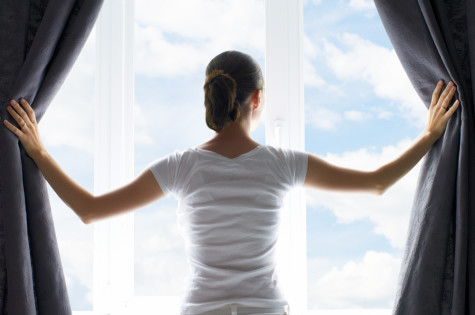 When Michael Jackson died, it came to light that he had been receiving an IV drip of the anesthetic Propofol throughout the night for the previous two months. His death was attributed to cardiac arrest, brought on by an overdose of the drug. Clearly, this kind of treatment is a bad idea, and I don’t know anyone who would support it. But in the months that followed, the underlying principle — that anesthesia can replace sleep — was summarily dismissed. I think it deserves a second look.
When Michael Jackson died, it came to light that he had been receiving an IV drip of the anesthetic Propofol throughout the night for the previous two months. His death was attributed to cardiac arrest, brought on by an overdose of the drug. Clearly, this kind of treatment is a bad idea, and I don’t know anyone who would support it. But in the months that followed, the underlying principle — that anesthesia can replace sleep — was summarily dismissed. I think it deserves a second look.
In the wrongful death suit that followed his private doctor’s trial, a Harvard sleep expert came in to testify:
Q: Is Propofol a sleep medication?
A: No; it’s an anesthetic.
Q: And is there a difference between an anesthetic and a sleep medication?
A: Yes.
The sleep expert submitted that Propofol only dissipates the sleep drive, rather than fulfilling the need for sleep.
A: It would be like eating some sort of cellulose pellets instead of dinner, and your stomach might be full, you would no longer be hungry, but you would have had zero calories and it would not fulfill any of your nutritional needs.
A: Genuine sleep fulfills biological needs, whereas Propofol anesthesia does not fulfill those biological needs.
But because the sleep expert wasn’t also an expert on Propofol, the Jacksons’ side brought in a decorated anesthesiologist to bolster the case.
In the anesthesiologist’s deposition:
Q: Any medical practitioner who uses Propofol as an agent to produce sleep, would they be mistaken?
A: They would be tremendously mistaken.
Q: Is REM sleep or non-REM sleep proper possible with Propofol sedation or general anesthesia?
A: No.
In the lawyer’s summary: “Mr. Jackson went two months without any sleep and instead received only Propofol.”
Indeed, sleep and anesthesia are distinct states, the latter being closer to an induced coma than to the cyclical, natural state of sleep. Stick a scalpel in a sleeping person at your own peril.
But the real question lies in whether Propofol fulfills the same function as sleep. Jackson reported feeling rested when he woke up, but the anesthesiologist attributed this to a dopamine release upon waking that gives patients a euphoric sensation. He had read this in a rat study, and it squared with his clinical experience.
A: “[Jackson] had this good feeling with Propofol that he could have interpreted as being well-rested. Because he was not having a restful sleep if he were receiving propofol as a sedative for sleeping.”
I don’t question at all that these were the considered opinions of two men at the top of their respective fields. It’s just that when I look at the literature, their answers are not what I see.
In addition to circadian rhythms, we have what’s known as a “homeostatic drive” for sleep, a need that builds throughout the day and is temporarily satisfied by sleeping. This need has two broad components – non-REM sleep, including restorative, slow wave sleep, and REM sleep. But that’s only shorthand for saying our body needs to achieve the effects of these sleep activities. The underlying homeostasis that is preserved — the main reason we sleep — may be to maintain a steady strength of neural connections in the brain.
The brain’s workings during sleep and anesthesia show many similarities, as well as some marked differences. Propofol and sleep produce similar slow-wave patterns, and the first study to establish this went as far as to conclude that “Propofol anesthesia is a sleep-like state.” Both sleep and anesthesia depress cortical connectivity, the amount brains regions talk to each other. We see body immobility in both states, but that happens in different ways, and we don’t see REM-like theta waves in anesthesia.
What we’re interested in here, however, is not mechanism but function. If we can show that sleep changes the effects of anesthetics, and that anesthetics affect the way you sleep, then we can infer some sort of functional relationship.
Sleep deprivation renders the effects of a given dose of Propofol more effective, with less time needed to lose consciousness. The subject isn’t just falling asleep in that time — their brain waves display a signature anesthetic flatness. Supporting this effect of deprivation is the fact that mutant fruit flies that need a shorter sleep actually require more anesthetic for the same effect.
So sleep, or lack thereof, does affect the response to anesthetics. How about the way anesthetics affect our subsequent sleep?
 After sleep deprivation, a good night’s sleep discharges that debt and reverses the effects of sleep deprivation, leaving us refreshed and alert. So does propofol, both for REM and non-REM sleep, according to a 2004 study in the journal Anesthesiology.
After sleep deprivation, a good night’s sleep discharges that debt and reverses the effects of sleep deprivation, leaving us refreshed and alert. So does propofol, both for REM and non-REM sleep, according to a 2004 study in the journal Anesthesiology.
“These data show that a recovery process similar to that occurring during naturally occurring sleep also takes place during anesthesia,” reads the study’s conclusion.
“Propofol appears to satisfy sleep debt very much like recovery sleep itself,” says anesthesiologist George Mashour of the University of Michigan. “If a patient came in who was in a sleep deprived state and they got propofol, they might actually be recovered and restored from the perspective of both REM and non-REM sleep.”
In another anesthetic, Sevoflurane, you actually see a complete recovery of non-REM sleep debt in half the time it would take for natural sleep to accomplish this.
To me, the final nail in the coffin for the “fake sleep” theory is the strength of the delta waves we see in sleep following anesthesia. Delta strength is an important marker that roughly corresponds to the depth of sleep. After an anesthetic, delta power plunges, whereas if there were continued sleep deprivation, we would see a deep recovery sleep with strong delta waves afterward.
Propofol may be a highly dangerous way to satisfy the need for sleep, but to say that it doesn’t at all – that sleep is nothing like anesthesia – does not fairly reflect the evidence. Let us not simply assume that sleep’s functions can only be achieved one way — through the exact pattern of brain waves evolution has settled on for getting the job done — nature rarely works that way.
Image: Shutterstock
If people can sleep while they are anaesthetized – and without continuous brain monitoring how would we know ? – then the restorative effects of being anaesthetized might be due to the sleep itself rather than the anaesthetic. Or not ……………..
Great question. Based on, as you say, continuous brain monitoring, we know that propofol takes control of the brain such that sleep proper doesn’t seem to happen. We can distinguish between the two states partly because propofol can be titrated for burst suppression, which gives you a distinctive flat wave only seen under anesthesia.
Thanks Jessa
So Jackson did not sleep at all for 2 months ?! Surprisingly that suggests that a large part of the benefits of sleep can be achieved by drug-induced unconsciousness. Are there any similar cases where the person’s general health was properly monitored ?
Two days (~48 hours) without sleep and I begin to see mild hallucinations. If MJ didn’t go totally batshit crazy in two months he must had had some equivalent of sleep??